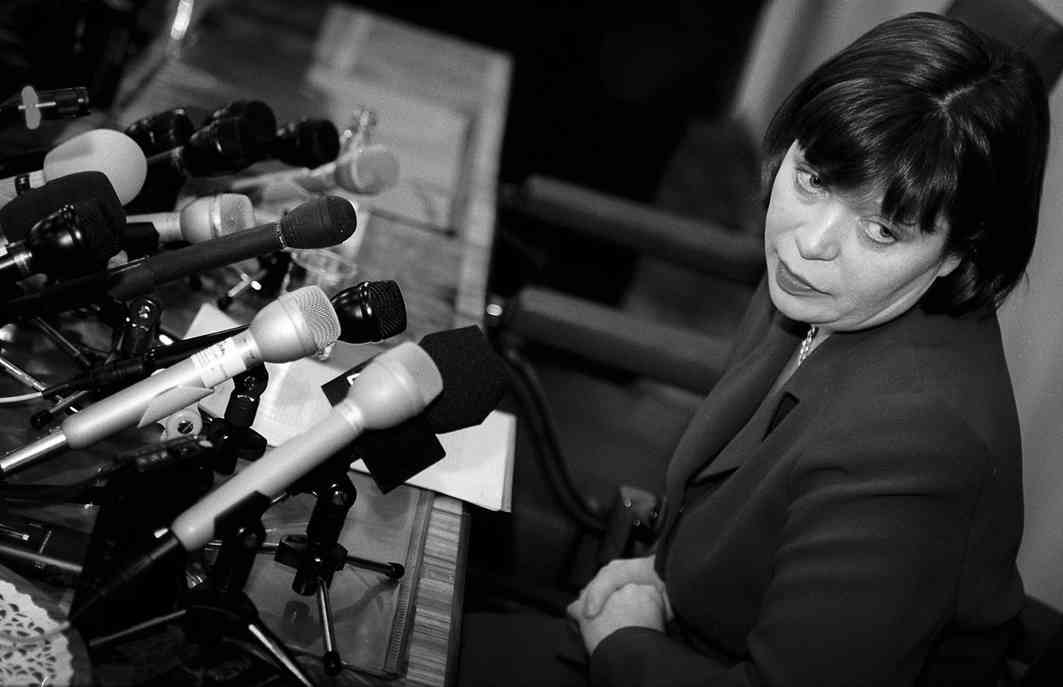|
Helsinki Edition
October 1998
About Us
Index
News
Features
Focus: Europe
Columns
Letters to the Editor
Editorial
Links
Archive |
When off the record means off the record

Imagine that you talk to a politician and she tells you the prime minister has lied. At the end of the conversation she forbids you to publish it. Would you go out with the information and be loyal to your audience or let it be and be loyal to your source?
Timo Harakka, a Finnish TV-journalist faced this problem in the beginning of October this year. He had a discussion on the phone with ex-minister Arja Alho who told him that the prime minister Paavo Lipponen had been lying to the parliament. Harakka was tape recording the conversation and Arja Alho knew it. Later during the conversation Alho told him not to use the tape.
Harakka gave the tape to journalists on the TV news show Ajankohtainen kakkonen on channel 2. "I told them to do what they want with the material, but to remember that Alho has forbidden me to use the tape," says Harakka.
There had been a political scandal in Finland in 1997 with the result that minister Alho quit because she was criticised for her decisions. The new information now was that the prime minister had had a lot of responsibility in those decisions and had not told the truth about it when addressing the parliament.
The journalists with this hot information had a discussion with their producer about what to do with the tape: would it be all right to make a programme about it but still not broadcast the phone call? Because of the disagreement of Alho they had to ask the heads of the TV-channel 2 for a permission. After meetings with the producer and some journalists the heads decided not to let any of the information go out on TV.
Tabloids first to tell
"We based our decision on the ethical code of journalists and on the ethical code of our broadcasting company YLE. And we definitely thought it was more important in this case that the source can keep on trusting in the journalist," says Jyrki Richt, the producer of the news magazine. He admits, though, that there was a collision between the ethical codes: "Oh yes, if you have got some information that is nationally of exceptional importance, you could publish it."
The heads of the company had the same opinion: A confidential discussion cannot be published, unless both parties agree to it.
Furthermore, the official explanation was that the discussion was not meant to be published.
"This is how it has always been and the code should not be changed without discussion," executive director Arne Wessberg says.
Jyrki Richt wants to give the impression that everyone at TV 2's meeting agreed on the final decision. But the producer of another programme on channel 2 didn't quite agree with him. One week later the tabloids cited the "very confidential discussion" word for word. The producer had leaked the information. He was fired immediately when revealed.
"I don't accept leaks at all," says an upset Richt, "there is no information so important that you have to make a leak outside the company! I think it's a basic rule in every newsroom."
In Wessberg's opinion the audience must learn relevant things, but if the journalist has agreed to take information off the record he or she has to face the consequences. This means, the source must be protected. The only way to inform the audience is to present the facts anonymously or use them as background. Wessberg states:
"There is no issue big enough to break the promise".
But Harakka denies agreeing to go off the record. He says:
"I didn't promise Alho protection of the source."
Jonna Engberg
Ann-Charlotte Helenius
Aditional information
The source of the information has to be protected. The identity of the person giving confidential information must not be revealed without his/her permission. -The ethcal code of YLE -
On the other hand, one must be able to publish information of significant general matter...- The ethical code for journalists in Finland -
|
